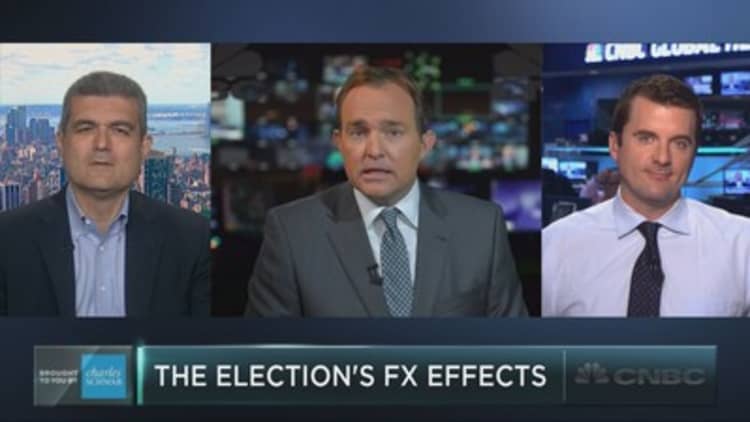The U.S. dollar hit an eight-day high against the yen on Thursday on reduced appetite for the safe-haven currency a day after OPEC agreed to cut oil output, while easing concerns surrounding the European banking sector helped the euro gain.
OPEC agreed on Wednesday to modest oil output cuts in the first such deal since 2008, with the group's leader, Saudi Arabia, softening its stance on arch-rival Iran amid mounting pressure from low oil prices.
The dollar was last up 0.44 percent against the at 101.09 yen after hitting an eight-day high of 101.84 yen.
While the deal helped lift currencies of oil exporters on Wednesday, including the Norwegian crown and the Canadian dollar, those currencies were little changed on Thursday, partly on concerns over the feasibility of the Organization of the Petroleum Exporting Countries implementing the deal.

"There is reason to think that being skeptical about OPEC production quotas is a reasonable approach," said David Gilmore, partner at FX Analytics in Essex, Connecticut.
The euro was last up 0.2 percent against the U.S. dollar at $1.1245, reversing losses sustained earlier in the session after analysts said reduced concerns surrounding the European banking sector helped the currency gain.
Deutsche Bank, Germany's biggest lender, is fighting a $14 billion U.S. demand to settle claims over mortgage-backed securities. Shares in the bank were last up 1.3 percent, however, after touching record lows on Tuesday.
The dollar index, which measures the greenback against a basket of six major currencies, was last down 0.09 percent at 95.344. Analysts said the gains, while modest, reflected the view that there was a greater likelihood that the Federal Reserve would raise interest rates in December.

Analysts said U.S. Commerce Department data showing gross domestic product expanded at a 1.4 percent annual rate in the second quarter helped boost expectations of a Fed rate increase by the end of the year. Higher oil prices also supported those expectations.
Traders saw a 57.4 percent chance that the Fed would hike rates in December on Thursday, up from a 53.1 percent chance on Wednesday, according to CME Group's FedWatch program.
"An orderly rise in oil prices would signal a broader sense of global market stability," said Omer Esiner, chief market analyst at Commonwealth Foreign Exchange Inc. in Washington. "It would be inflationary, and it would be the type of argument that would argue for higher rates from the Federal Reserve."

